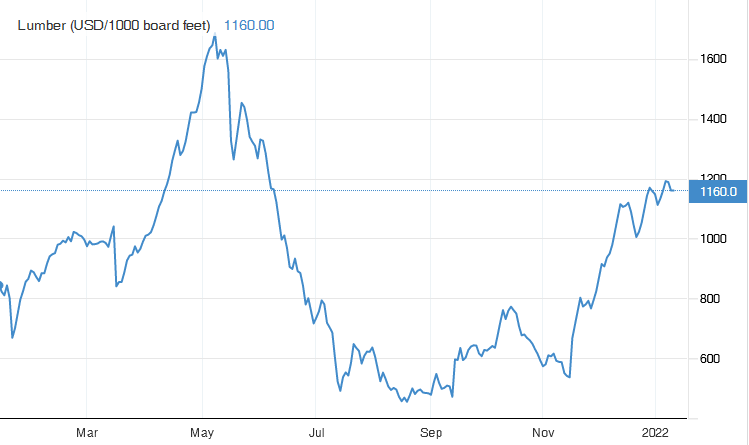
This article will provide information on alternative energy stock investments. We'll discuss the basics of renewable energy and utility stocks. We will also talk about the importance of energy to the economy. You can invest in Brookfield Renewable, a leading global renewable energy producer. Its power power is purchased under long-term power purchase arrangements. Exelon (Chevron), Avista, and Avista are all examples of energy securities.
Investing In Stock Alternative Energy Companies
There are many options when it comes to investing in stocks of alternative energy companies. These stocks are attractive because they have a low price/earnings ratio. That means you pay less for every dollar that they make. These companies create products that increase efficiency of wind turbines or solar panels. Some of them have already made millions. Others are creating their own energy grids.
A strong track record of value creation, financial strength, high-growth prospects, and strong financial history are some of the best attributes of renewable energy company stock. These attributes should help investors realize outsized total returns in the years ahead. So, we interviewed several experts on investing, including Professor Priya Patri of the University of Chicago Booth School of Business. She shared her tips on making smart investments in alternative energy stocks. These companies offer the best opportunities to invest in stock in alternative energy companies.

Investing with renewable energy stocks
A great way to support the green revolution is to invest in renewable energy stocks. It also creates a portfolio with a green outlook. The global economy rapidly shifts away fossil fuels to more sustainable and renewable energy sources. Over the next three years, this transformation will require an estimated $100 billion investment. This transition will be made possible by renewable energy. Listed below are some of the renewable energy stocks to consider investing in.
One of the hottest renewable energy stocks today is Plug Power, which leads the hydrogen fuel cell market with $162 million in Q4 2021. It has ambitious expansion plans that include reaching $1.2B per year in sales and $200 million in operating revenue by 2024. Its stock price currently stands at about $25. Other green energy stocks to consider include Solaredge Technologies, which is developing advanced solar panels.
Investing in utility stocks
Utility stocks have been a staple in institutional and individual portfolios over the years. These companies provide an indispensable service to millions. These companies have monopolistic attributes, so depending on where your home is, you may only find one company offering the service you need. These stocks can provide steady cash flow. They can be used to diversify portfolios and protect you from inflation.
Utility companies are an excellent stock to consider when searching for dividend stocks. The basic consumer services that these companies provide will always be in demand, including electricity, water, natural gasses, and dams. In fact, the need for these services is expected to continue to rise as long as there is a human population. Utilities also provide income infrastructure. While the growth rates of utility companies may be slow, they will continue to grow.

Investing in solar energy stocks
Solar energy stocks can be a viable investment vehicle that comes with low risk and offers significant financial rewards. Before you invest in solar energy stocks, do your research. Learn about the pros and cons for each investment option. Listed below are some of the benefits and disadvantages of solar stocks. Read up on the company's past performance before you decide to invest in them.
First, it is important to find a company that has global reach. Solar companies should be active in a wide range of countries and should not be reliant on one country. When looking at the company's financial reports, determine whether it has the potential for rapid growth in the future and how risky it is. Beginners may want to consider companies that have been around for a long time. A well-run company with a large customer base should provide a significant return over time.
FAQ
What is the difference in the stock and securities markets?
The entire list of companies listed on a stock exchange to trade shares is known as the securities market. This includes options, stocks, futures contracts and other financial instruments. Stock markets are generally divided into two main categories: primary market and secondary. The NYSE (New York Stock Exchange), and NASDAQ (National Association of Securities Dealers Automated Quotations) are examples of large stock markets. Secondary stock market are smaller exchanges that allow private investors to trade. These include OTC Bulletin Board Over-the-Counter (Pink Sheets) and Nasdaq ShortCap Market.
Stock markets are important as they allow people to trade shares of businesses and buy or sell them. The value of shares is determined by their trading price. New shares are issued to the public when a company goes public. Investors who purchase these newly issued shares receive dividends. Dividends can be described as payments made by corporations to shareholders.
Stock markets provide buyers and sellers with a platform, as well as being a means of corporate governance. Boards of directors, elected by shareholders, oversee the management. Boards ensure that managers use ethical business practices. If the board is unable to fulfill its duties, the government could replace it.
Are bonds tradable?
The answer is yes, they are! Bonds are traded on exchanges just as shares are. They have been for many, many years.
The main difference between them is that you cannot buy a bond directly from an issuer. They can only be bought through a broker.
Because there are fewer intermediaries involved, it makes buying bonds much simpler. This means you need to find someone willing and able to buy your bonds.
There are many kinds of bonds. There are many types of bonds. Some pay regular interest while others don't.
Some pay interest every quarter, while some pay it annually. These differences allow bonds to be easily compared.
Bonds can be very useful for investing your money. You would get 0.75% interest annually if you invested PS10,000 in savings. You would earn 12.5% per annum if you put the same amount into a 10-year government bond.
If you were to put all of these investments into a portfolio, then the total return over ten years would be higher using the bond investment.
Is stock a security that can be traded?
Stock is an investment vehicle where you can buy shares of companies to make money. This is done via a brokerage firm where you purchase stocks and bonds.
You could also invest directly in individual stocks or even mutual funds. There are over 50,000 mutual funds options.
The main difference between these two methods is the way you make money. With direct investment, you earn income from dividends paid by the company, while with stock trading, you actually trade stocks or bonds in order to profit.
In both cases, ownership is purchased in a corporation or company. However, if you own a percentage of a company you are a shareholder. The company's earnings determine how much you get dividends.
Stock trading gives you the option to either short-sell (borrow a stock) and hope it drops below your cost or go long-term by holding onto the shares, hoping that their value increases.
There are three types of stock trades: call, put, and exchange-traded funds. Call and Put options give you the ability to buy or trade a particular stock at a given price and within a defined time. ETFs are similar to mutual funds, except that they track a group of stocks and not individual securities.
Stock trading is very popular because it allows investors to participate in the growth of a company without having to manage day-to-day operations.
Stock trading can be very rewarding, even though it requires a lot planning and careful study. You will need to know the basics of accounting, finance, and economics if you want to follow this career path.
Statistics
- Ratchet down that 10% if you don't yet have a healthy emergency fund and 10% to 15% of your income funneled into a retirement savings account. (nerdwallet.com)
- Individuals with very limited financial experience are either terrified by horror stories of average investors losing 50% of their portfolio value or are beguiled by "hot tips" that bear the promise of huge rewards but seldom pay off. (investopedia.com)
- "If all of your money's in one stock, you could potentially lose 50% of it overnight," Moore says. (nerdwallet.com)
- Even if you find talent for trading stocks, allocating more than 10% of your portfolio to an individual stock can expose your savings to too much volatility. (nerdwallet.com)
External Links
How To
How to Trade on the Stock Market
Stock trading is the process of buying or selling stocks, bonds and commodities, as well derivatives. The word "trading" comes from the French term traiteur (someone who buys and sells). Traders purchase and sell securities in order make money from the difference between what is paid and what they get. This is the oldest form of financial investment.
There are many ways to invest in the stock market. There are three types that you can invest in the stock market: active, passive, or hybrid. Passive investors do nothing except watch their investments grow while actively traded investors try to pick winning companies and profit from them. Hybrid investors use a combination of these two approaches.
Passive investing is done through index funds that track broad indices like the S&P 500 or Dow Jones Industrial Average, etc. This type of investing is very popular as it allows you the opportunity to reap the benefits and not have to worry about the risks. You can simply relax and let the investments work for yourself.
Active investing involves selecting companies and studying their performance. Active investors look at earnings growth, return-on-equity, debt ratios P/E ratios cash flow, book price, dividend payout, management team, history of share prices, etc. They then decide whether they will buy shares or not. If they feel that the company's value is low, they will buy shares hoping that it goes up. However, if they feel that the company is too valuable, they will wait for it to drop before they buy stock.
Hybrid investing combines some aspects of both passive and active investing. A fund may track many stocks. However, you may also choose to invest in several companies. In this instance, you might put part of your portfolio in passively managed funds and part in active managed funds.